Chinese musicologist brings wide range of instruments and influences to teaching, movie and theater scores, original CDs and local performances
It’s a chilly March evening in Glen Park. Thirty or so music fans have crowded into Bird & Beckett Books and Records, a neighborhood haunt for live jazz and poetry performances. Tonight, though, classical Chinese music is on the menu as San Francisco celebrates Chinese New Year.
“How many of you are Tigers?” Betty Wong asks from the stage, noting that 2022 is the Year of the Tiger.
The program starts with a quartet playing music from Xinjiang, a province in Western China, known for the mistreatment of its Uyghur population, a Turkic ethnic group that follows Islam. Wong, 83, takes the stage holding a hulusi – a woodwind instrument that looks like a recorder with a gourd on the top. The hulusi, Wong explains, is often used by minority tribes in China, and she proceeds to play an ethnic Chinese folk tune. (You can view the performance here.)
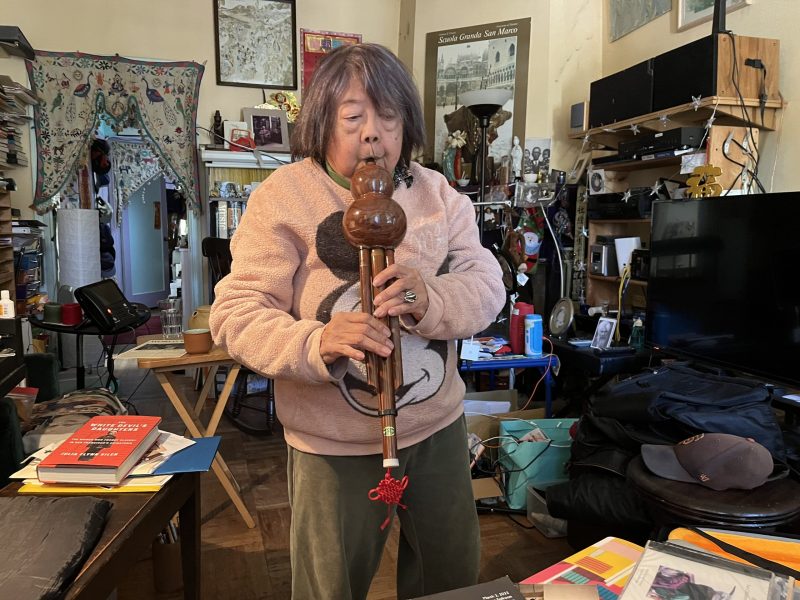
This evening, Wong shares the program with a jazz quartet, a poet and two high school music students.
Wong is a pianist, composer, teacher, musicologist and authority on Chinese music. She plays 10 instruments, has composed and conducted movie and theater scores, pioneered in the development of electronic music, produced multiple CDs, and founded, along with her sister, The Flowing Stream Ensemble, one of the first groups to play Chinese music outside of Chinatown.
She’s mentored hundreds of students during a 49-year (so far) career at the Community Music Center in San Francisco’s Mission District and is well known and popular in the Bay Area music community. Always a woman of eclectic tastes, she became interested in the tango when she was in her 70s and now performs the work of Astor Pantaleón Piazzolla, Argentina’s master composer of tangos.
Blending the world’s music
Although known for popularizing the music of China, Wong’s work often blends elements of world and western music, including jazz. Flowing Stream, her best-known ensemble, included several well-known jazz musicians. She counted jazz great Ornette Coleman among her friends.
“Her life is her students and her dedication to music,” said Randy Craig, a jazz musician who has taught at the Music Center and frequently performs with Wong. “She is an excellent pianist, a wonderful player, always putting together recitals.”
Wong has lived in a 70-year-old house with cranky plumbing in Glen Park for decades. Her living room is an obstacle course of musical instruments, recording equipment, music stands and mementos. Chinese lanterns hang from the ceiling. Posters and letters of appreciation, including notes from former Mayor Diane Feinstein and Congresswoman Nancy Pelosi, paper the walls. A brightly colored Chinese-style mural of a dragon – the work of a friend – covers the door of her over-stuffed garage.
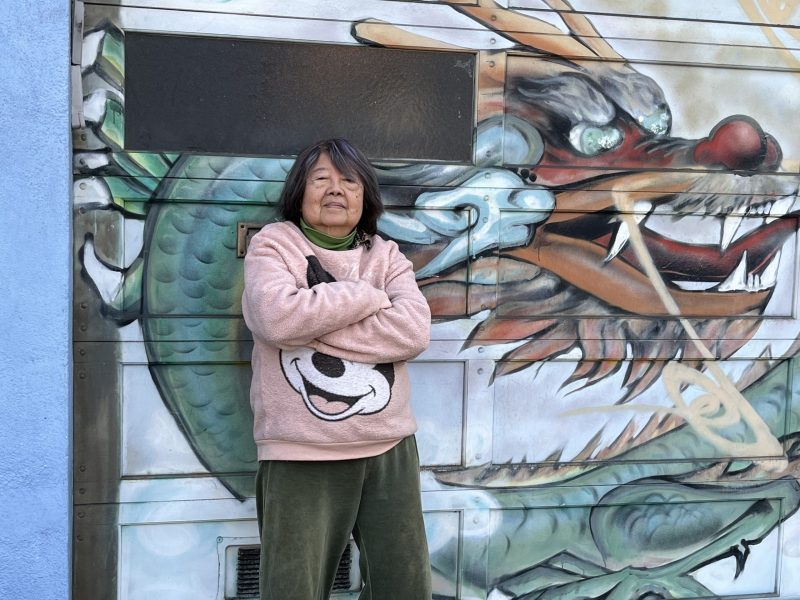
Wong is tiny. “I’m not even five feet tall anymore; I think I shrank,” she said. But she talks quickly, memories and ideas pouring out. People can have a hard time keeping up. “She can be a handful,” said Eric Whittington, the owner of Bird & Beckett, where Wong performs at least once a year. “She moves into a space and is immediately going a million miles an hour,” he said.
Although she has performed countless times, Wong admits to getting nervous as a concert date approaches. “I need to run through this piece (a tango she composed) once more,” Wong said while a visitor was coaxing her to leave for a theater date.
Wong laughs when asked about her background. “It was different; it was unique,” she said. Wong and her sister, Shirley, also an accomplished musician, are identical twins. They were born in a Sacramento Street tenement and didn’t leave Chinatown until they were about 12 years old.
An Angel Island connection
Her mother, the daughter of a rice farmer, was educated by missionaries and imprisoned on Angel Island the first time she attempted to enter California. Wong spoke Cantonese at home but only English in school because her teachers forbid students to speak Chinese.
At a time when education of girls wasn’t always a priority for Chinese families, Wong’s father, a grocer, poet and staunch anti-Communist, paid for piano lessons in Chinatown for his seven-year-old daughters. Wong learned to read music by practicing the songs in her mother’s copy of a Baptist hymnbook.
After a few years, the piano instructor told Wong she had nothing more to teach her. In retrospect, it was surprising her teacher was able to convince Wong’s father to send the twins to music lessons in downtown San Francisco, Wong said.
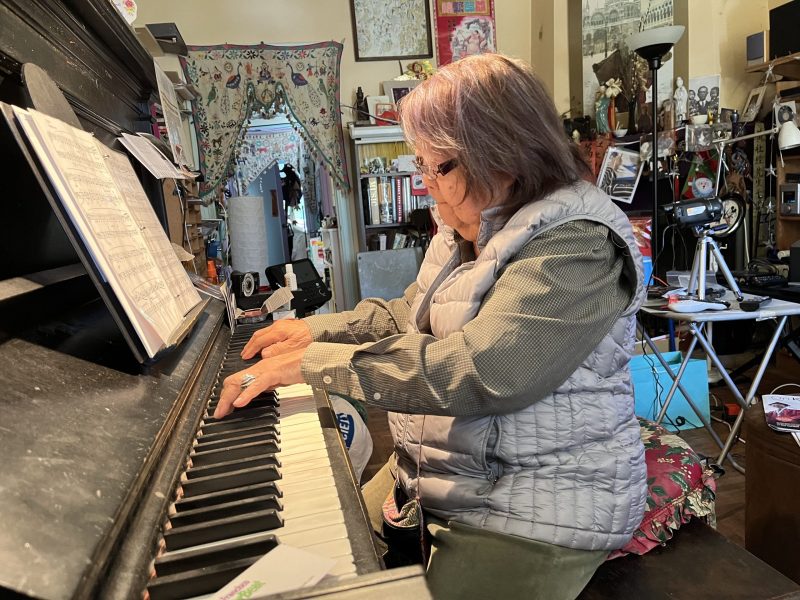
“We were scared to death,” she recalled, and insisted that their mother accompany them on the short bus ride through the Stockton Tunnel to their new teacher’s downtown studio. The lessons cost $10 a week, real money for a family of modest means in the early 1950s. “Most parents then wouldn’t have done that for daughters. It was the start of my musical career, a gift from my father,” Wong told a local music publication some years ago.
Her first teacher had the girls learn John Phillips Sousa’s “The Stars and Stripes Forever.” Their new teacher had them play it as a duet: “He thought we were so cute,” Wong said. Their initial training was in classical music, but they were exposed to Chinese music via the radio programs played by their mother and the Chinese movies and operas they attended in the neighborhood.
“There was no television, no Internet and we were too young to go to the movies ourselves, so we listened to the radio for hours,” Wong said.
Popularizing Chinese music
Chinese music remained well in the background as Wong’s study of Western music culminated in a master’s degree in composition. Returning to San Francisco after graduate school in Southern California, Wong, at her brother’s urging, attended a workshop in Chinese music at the Chinese Cultural Center. It changed her life and redirected her career. “It was such a fertile time. I rediscovered Chinese music and didn’t play the piano again for seven years,” she said.
Inspired and energized by the eight-week course, Wong, her sister and a few friends formed the Flowing Stream Ensemble, composing with a combination of Chinese, Japanese, Middle Eastern and Western instruments. ”We spent a year in a cloud learning to play those sounds we had heard all our lives,” she told the San Francisco Examiner in 1984.
Flowing Stream’s members came from different ethnic backgrounds and musical traditions – some with classical training, others proficient in jazz. The group quickly attracted notice and performed at the state banquet for the visit of Chinese Premier Zhao Ziyang. Flowing Stream, Wong told the paper, “brought Chinese music from the basement clubs to the museums and the schools.”
A member of Flowing Stream obtained a cassette of music from Xinjiang. Although that province is part of China, much of its population, language and music are Turkic. Its music uses different scales and rhythms than Western music and has an Arabic sound. Wong was captivated.
Years later, Wong and a new ensemble called Phoenix Spring produced “In Xinjiang Time,” a CD of music from the region. The title references the two-hour time difference between the province and Beijing. “I was first attracted to the Uyghurs’ music, but it resonated with the treatment of indigenous people around the world. All of it was genocide,” she said.
Wong had studied with Pauline Oliveros, a leader in the development of electronic music. In those early days, musicians working in the genre often had to build their own equipment. “I learned I had a brain for circuitry,” said Wong, proudly adding that she once built a sound mixer small enough to fit in a suitcase.
‘Together Again’
Wong also composed film and theater scores. In 1988, she received the Hollywood Dramalogue Critics Award for Outstanding Achievement for Original Music Theater for her work with the American Conservatory Theater’s production of Eugene O’Neill’s “Marco Millions.” She not only composed the music but played the zither and other instruments in the orchestra pit.
Even so, Wong said she doesn’t spend a lot of time listening to music. “When you’re a musician you need to get away from it,” but she still enjoys playing with friends and colleagues at the Music Center where she has a modest workload. In early May, she performed a tango she composed at the Music of the Americas Festival at Old First Church. She’s a sports fan and dedicated follower of the San Francisco Giants and Golden State Warriors. When her knees are up to it, she hikes in nearby Glen Canyon Park.
As the pandemic loosened its grip on San Francisco, she produced a new CD, called “Together Again.” Eclectic as always, Wong included jazz, tango, classical selections and a work by her sister. The liner notes say this: “Together Again is music-making that draws energy from what it means to be alive and productive; it bears the scars and lessons learned from the time of pandemic.”



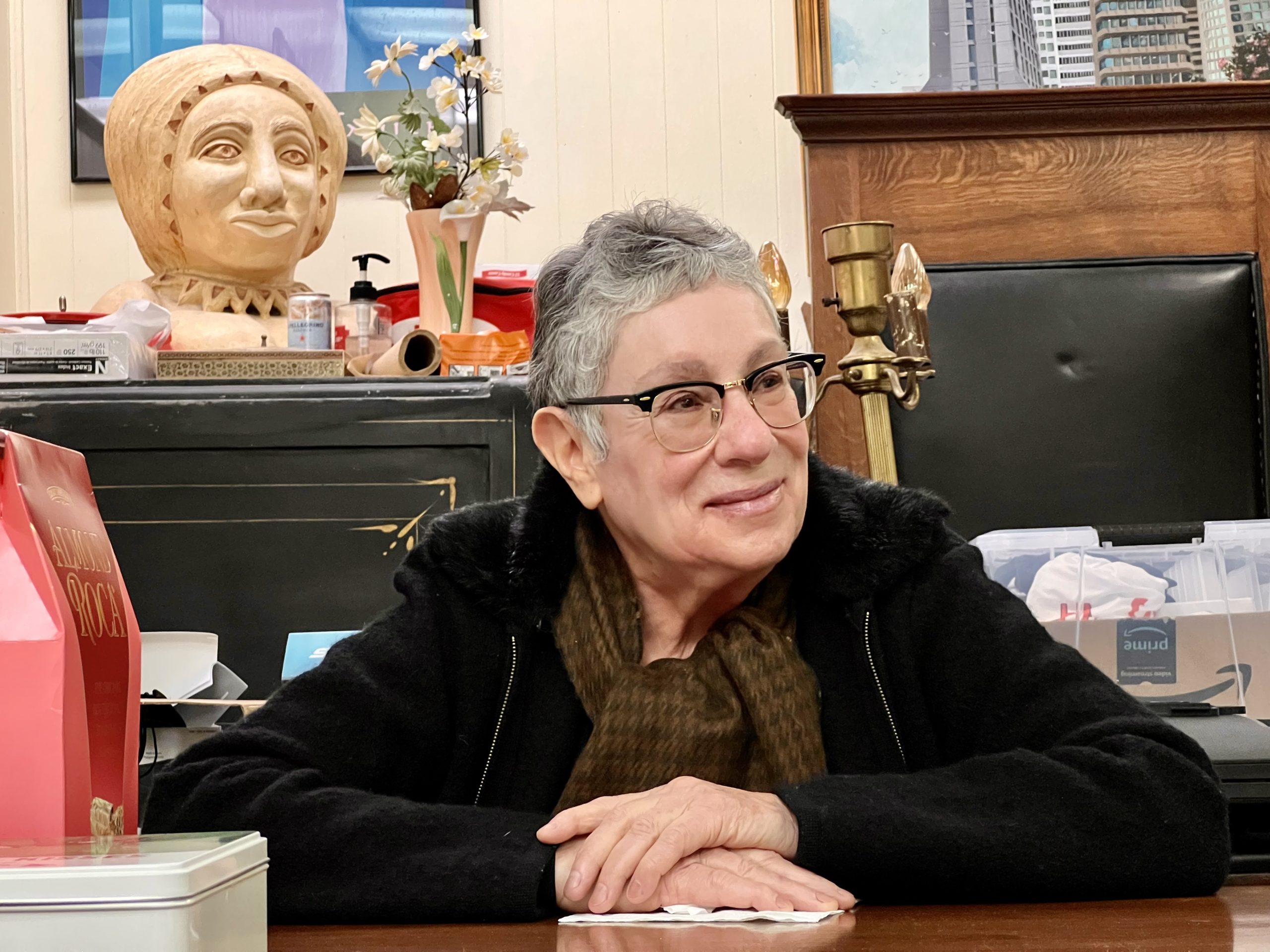
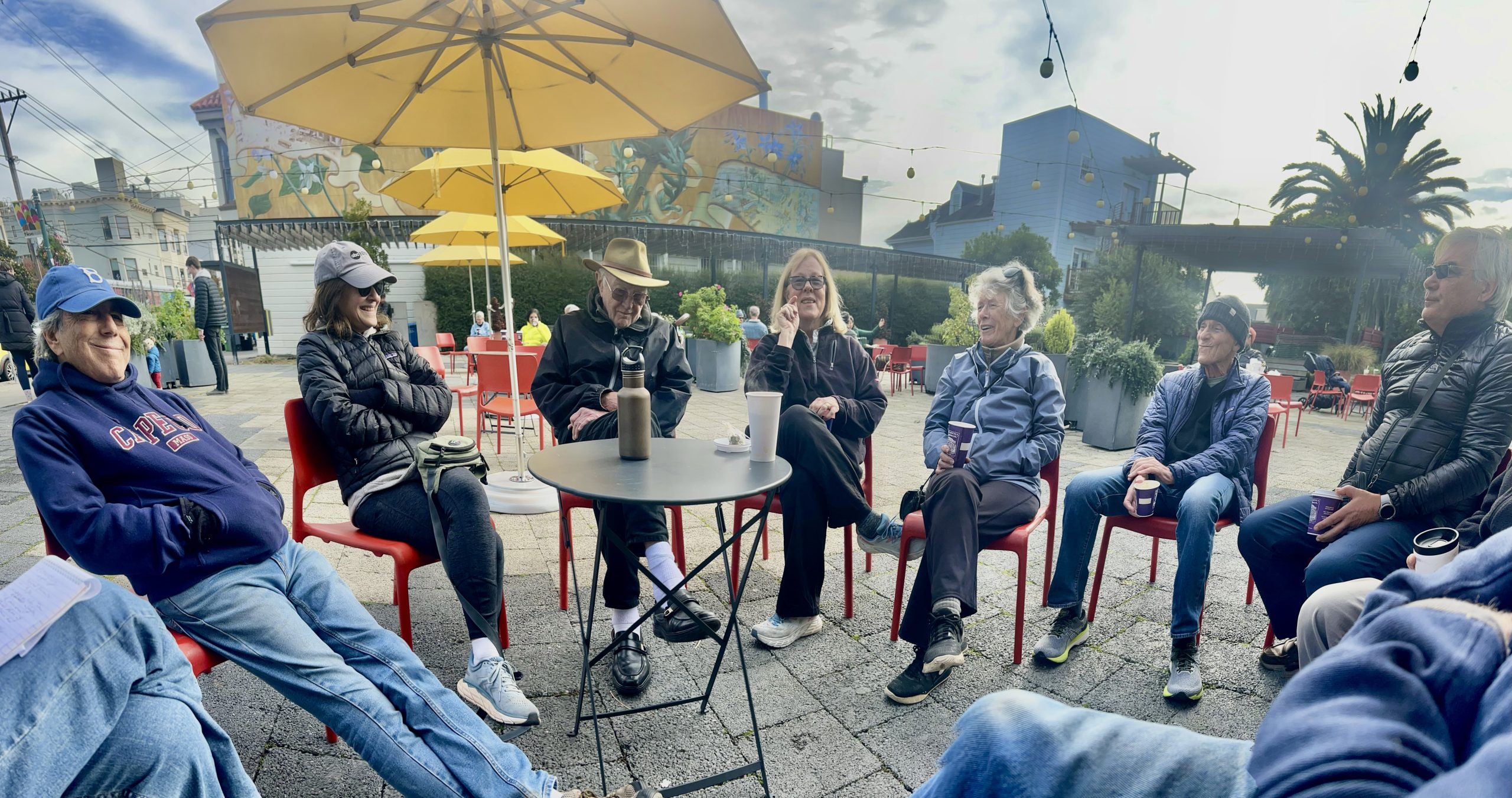
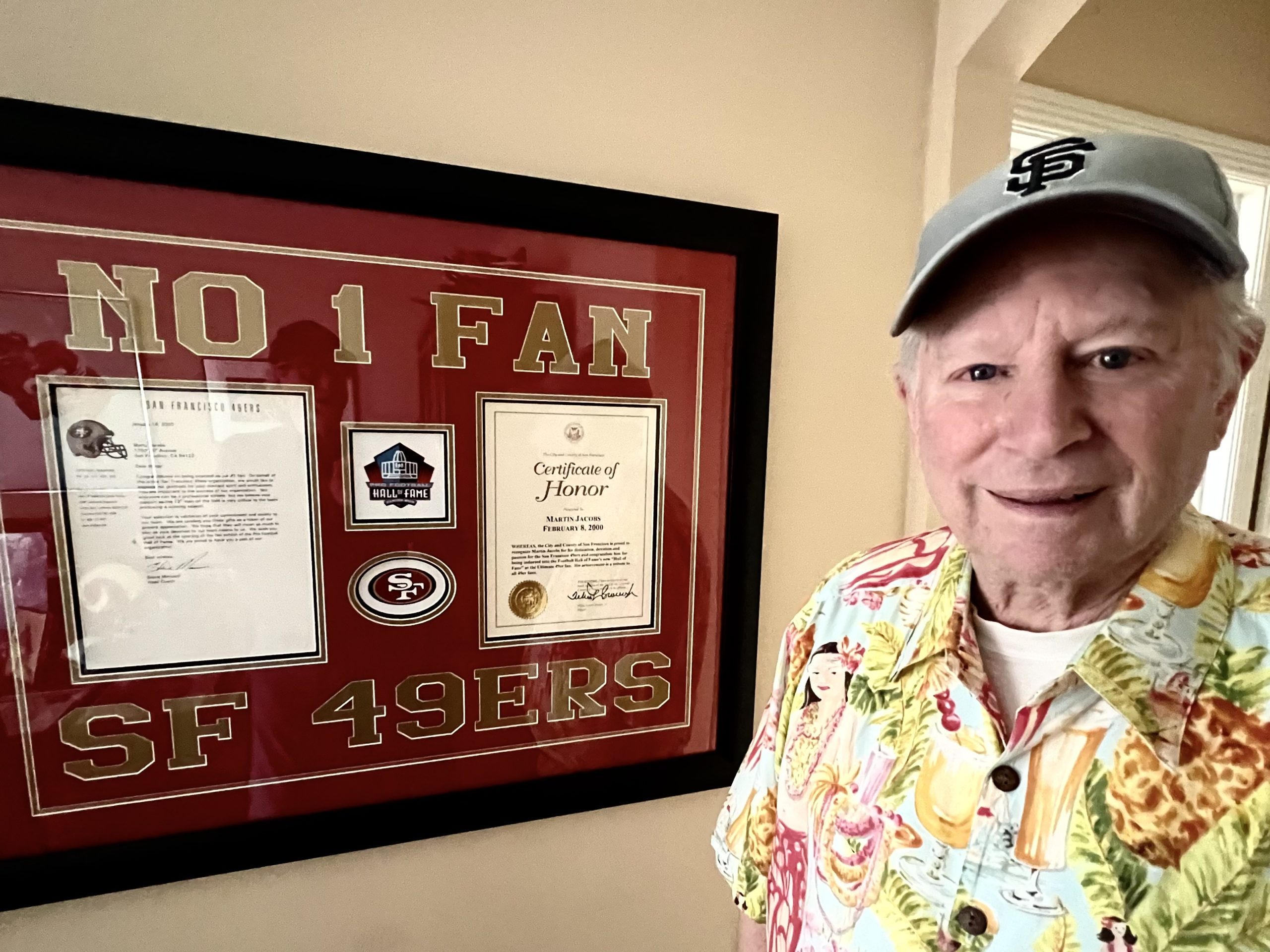
Randy Craig
A very fine article - informative and entertaining.